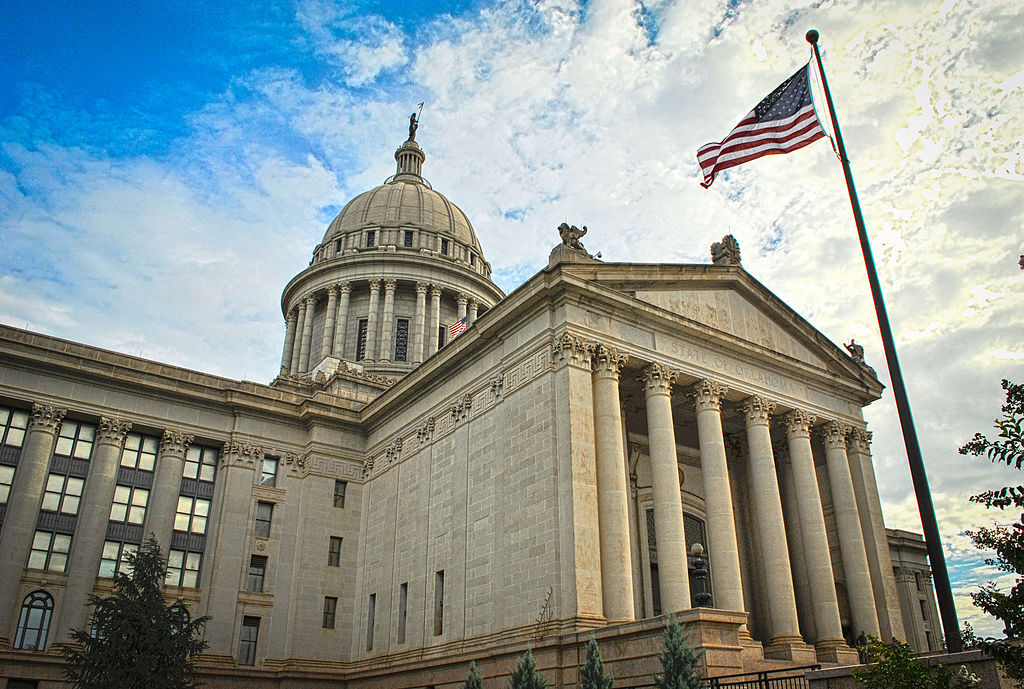
- Details
- By Native News Online Staff
OKLAHOMA CITY, Okla. — In a letter dated Oct. 1, 2020, U.S. Environmental Protection Agency (EPA) Administrator Andrew Wheeler sent to Oklahoma Gov. Kevin Stitt granted the state of Oklahoma regulatory control over environmental issues on nearly all tribal lands in the state.
The letter comes after Stitt requested on July 22, 2020 control of environmental regulations on tribal land involving a wide range of issues. All of Stitt’s requests in his letter were granted by the EPA.
“EPA’s letter grants Oklahoma’s request to administer the State’s EPA-approved environmental regulatory programs in certain areas of Indian country. EPA’s letter resolves ambiguity and essentially preserves the regulatory status quo in Oklahoma,” EPA spokesman James Hewitt said in a statement, adding that existing exemptions would still stand and that the agency would implement federal environmental programs.
“Additionally, if any tribe wants to apply for regulatory oversight of these environmental programs, then they can apply through EPA’s Treatment as a State process,” he added.
Wheeler’s letter giving control to Oklahoma referenced the SAFETEA Act of 2005, a transportation bill sponsored by sponsored by Sen. James Inhofe (R-Okla.) that allows Oklahoma to oversee environmental issues “in the areas of the state that are in Indian country, without any further demonstration of authority by the state.”
Tribal officials were not happy with the EPA’s stance that comes so close to the historic U.S. Supreme Court McGirt v. Oklahoma on July 9, a ruling that gave major legal jurisdictional authority to tribes for almost half of the eastern part of Oklahoma.
The Muscogee (Creek) Nation responded to the EPA’s decision in the following statement:
"The Muscogee (Creek) Nation is disappointed in the decision of the EPA to grant Governor Stitt's request to administer environmental regulation in certain areas of Indian Country under the SAFETEA Act of 2005. Like the SAFETEA Act itself, this was a swift move meant to circumvent the appropriate time and available information to adequately respond. The Muscogee (Creek) Nation submitted a request for tribal consultation just two days after the Governor submitted his request. The MCN was granted two consultations, but it seems the concerns raised did not suffice. The MCN will continue seeking remedies to the situation."
Tribal officials fear the EPA’s decision establishes a pathway to potential environmental abuses on tribal land, including dumping hazardous chemicals like carcinogenic PCBs and petroleum spills, with no legal recourse by the tribes.
“It’s disappointing the Cherokee Nation’s request that EPA consult individually with affected Oklahoma tribes was ignored,” Cherokee Nation Principal Chief Chuck Hoskin Jr. said in a statement to The Hill.
“Unfortunately, the governor’s decision to invoke a 2005 federal law ignores the longstanding relationships between state agencies and the Cherokee Nation. All Oklahomans benefit when the Tribes and state work together in the spirit of mutual respect and this knee-jerk reaction to curtail tribal jurisdiction is not productive,” he added.
The EPA decision comes after it consulted with tribes. The summary, however, says Indian Country opposed the decision.
More Stories Like This
NCAI Passes Two Emergency Resolutions on Immigration Enforcement ActivitiesChickasaw Lighthorse Police Officer named Indian Country Law Enforcement Officer of the Year
Indian Gaming Association Rallies Broad Coalition Against Sports Event Contracts It Calls Illegal Threat to Tribal Sovereignty
Navajo Resources and Development Committee Issues Notice on Livestock Inspection Requirements
American Prairie, Tribal Coalition Files Protest Over Rescinded Grazing Rights
Help us defend tribal sovereignty.
At Native News Online, our mission is rooted in telling the stories that strengthen sovereignty and uplift Indigenous voices — not just at year’s end, but every single day.
Because of your generosity last year, we were able to keep our reporters on the ground in tribal communities, at national gatherings and in the halls of Congress — covering the issues that matter most to Indian Country: sovereignty, culture, education, health and economic opportunity.
That support sustained us through a tough year in 2025. Now, as we look to the year ahead, we need your help right now to ensure warrior journalism remains strong — reporting that defends tribal sovereignty, amplifies Native truth, and holds power accountable.
 The stakes couldn't be higher. Your support keeps Native voices heard, Native stories told and Native sovereignty defended.
The stakes couldn't be higher. Your support keeps Native voices heard, Native stories told and Native sovereignty defended.
Stand with Warrior Journalism today.
Levi Rickert (Potawatomi), Editor & Publisher

